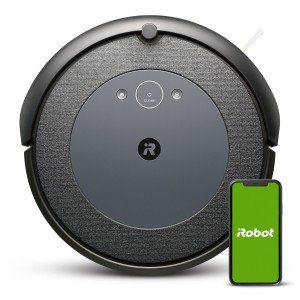Understanding Robot Vacuum Cleaner Prices: A Comprehensive Guide
In the last few years, robot vacuum have actually transformed the way individuals clean their homes. Their ease of usage, benefit, and advanced innovation have actually made them increasingly popular. However, with bagless robot vacuum of models and functions available, potential purchasers frequently find themselves asking a sixty-four-thousand-dollar question: What should I expect to spend for a robot vacuum? This post aims to clarify the costs related to robot vacuum, factors that influence their costs, and suggestions for discovering the ideal device for your budget.
The Price Range of Robot Vacuum Cleaners
Robot vacuum cleaners can vary widely in price. Here, we break down the typical price range for different categories:
| Category | Price Range | Description |
|---|---|---|
| Entry-Level | ₤ 100 - ₤ 250 | Fundamental functions, suitable for small areas, minimal smart innovation. |
| Mid-Range | ₤ 250 - ₤ 500 | Boosted cleaning abilities, much better navigation, some smart features. |
| High-End | ₤ 500 - ₤ 1,000+ | Advanced mapping, powerful suction, internet connectivity, and app combination. |
Entry-Level Models
Low-cost robot vacuums are ideal for those who require a basic cleaning tool without luxury features. They frequently manage difficult floors well however might have problem with carpets and are typically less resilient.
Mid-Range Models
These vacuums often come equipped with better suction power and more intelligent navigation systems, making them ideal for bigger homes with mixed floor covering. Numerous models in this variety offer Wi-Fi connection and smart device control.
High-End Models
High-end robot vacuums are created for serious cleaning lovers. They normally provide sophisticated mapping innovation, effective suction, and integrated video cameras for boosted navigation. Furthermore, numerous high-end models permit vacuuming on a schedule and even have the capability to clear their dust bins immediately.
Elements Affecting Robot Vacuum Prices
Understanding the factors that can influence the price of a robot vacuum can help consumers make more educated buying choices. The following list describes some key features that can affect price:
- Brand Reputation: Established brand names generally carry a higher cost due to their track record and dependable customer assistance.
Cleaning Technology:
- Suction Power: More powerful models will be more pricey.
- Navigation Systems: Advanced models with better barrier detection and mapping abilities cost more.
- Smart Features: Models that offer connectivity to apps, voice control compatibility, and advanced scheduling alternatives tend to be priced higher.
- Battery Life: Longer-lasting batteries typically cause a higher price, as they enable the vacuum to clean bigger locations without needing to charge.
- Dustbin Size: Larger dustbins can be more practical for consumers, promoting a higher price point.
- Additional Features: Some vacuums offer mopping abilities, self-cleaning functions, and high-efficiency filters, which can increase their price.
Budget vs. Features: What to Consider
When buying a robot vacuum, it's essential to weigh your budget against the functions you most desire. Here are a number of factors to consider to assist you make an informed decision:
1. Examine Your Home's Needs
- Size of Space: Larger homes might gain from advanced vacuums that can cover more ground without frequent charging.
- Floor Types: If your home consists of a mix of carpet and difficult floors, choose a vacuum designed for both.
2. Determine Desired Features
- Decide which features are essential for you, such as scheduling, app connection, and cleaning modes.
3. Price vs. Durability
- While a higher investment can yield longer-lasting models, it's worth thinking about lower-cost choices if you're unpredictable about long-lasting usage.
Frequently Asked Questions (FAQs)
Q1: Are robot vacuums worth the investment?
A1: If you lead a busy way of life or have movement concerns, a robot vacuum can conserve significant time and effort in cleaning, making them a rewarding financial investment.
Q2: How frequently should I change a robot vacuum?
A2: Depending on the design and use, a robot vacuum normally lasts in between 3 to 5 years. automatic vacuum cleaners -end designs may last longer with proper upkeep.
Q3: Can a robot vacuum entirely replace a standard vacuum?
A3: While robot vacuums effectively handle everyday cleaning, they might not change conventional vacuums for deep cleaning, particularly in multi-level homes or areas requiring extensive care.
Q4: What is the typical life-span of a robot vacuum?
A4: The lifespan of robot vacuums varies by design, but a lot of last in between 3-5 years with routine maintenance, like dustbin emptying and filter modifications.
Q5: Do robot vacuums work on carpets?
A5: Yes, but the efficiency will depend on the design. Higher-priced models typically have better suction power to clean carpets successfully.
The marketplace for robot vacuum cleaners is varied, with models to fit different budget plans and cleaning needs. Whether consumers are searching for a standard cleaning tool or an innovative device geared up with numerous smart functions, comprehending the price ranges and factors impacting costs is crucial. With cautious factor to consider of private requirements and financial restraints, possible purchasers can discover a robot vacuum that will boost their cleaning regular and supply long-lasting fulfillment.

